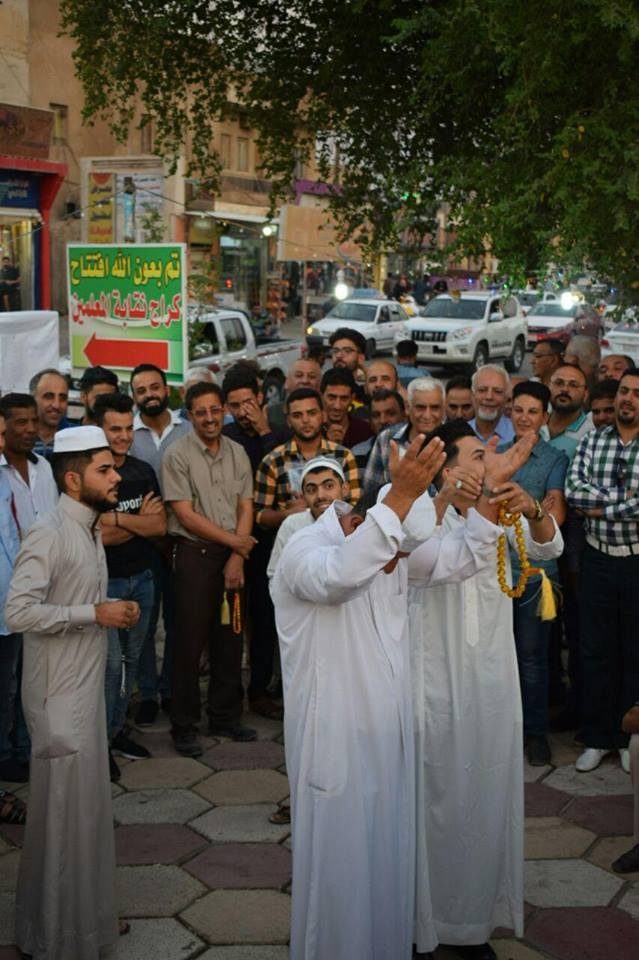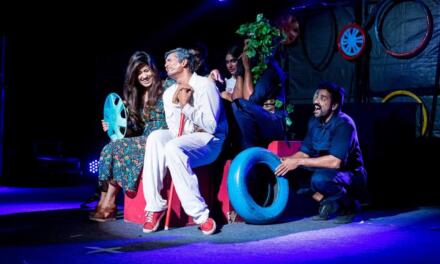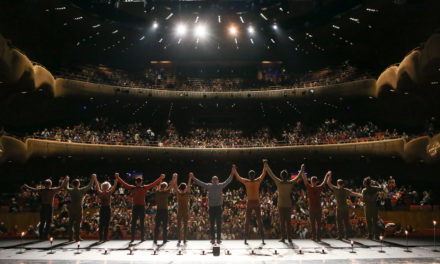Every Friday, locals in the city of Kut flock to what’s now known as “the Tigris street of culture,” where they can see, among other things, street theatre that tackles the taboo and the controversial.
Shoppers mingle in the markets and cafes on Dhafaf street, opposite the Tigris river, in the center of the city of Kut. It’s Friday, the first day of the weekend. And then a small crowd starts to gather around two men. They are Mohammed al-Amarah and Jalal al-Shati and they’re here every week, putting on new street theatre for the locals’ edification and entertainment.
This week’s short play focuses on two characters, two very different young men who both studied law at Wasit University, One of the characters, Mahmoud, graduates and gets married to a younger woman; eventually he is able to take a job in her father’s office. His wife’s father is employed by the Iraqi government. But Ali has a different tale to tell. He graduates but cannot find a job or a wife and finds himself becoming increasingly depressed. He decides to try and leave the country, emigrating illegally but tragedy strikes: He drowns at sea while trying to get to Europe.
It’s supposed to get people thinking, the actor-playwrights explain. It’s about the injustice of Iraq’s corrupt system, where it’s not what you know that counts, but who you know.
Al-Amarah and the other members of his troupe say they are doing this in order to be able to reach all kinds of locals, of every social class and income level.
“And being able to interact directly with the audiences really shows us what has impact,” al-Amarah explains.
“There are a lot of ways you can reach the public but really street theatre is the most direct route,” says al-Shati, who often writes plays that are critical of the Iraqi government. “We can talk about all kinds of things: exclusion due to family or tribal connections and the theft of public money as well as other things that cause the Iraqi people to suffer.”
The street theatre team usually just sets up in a space somewhere in the shopping area and begins their performance. They don’t announce anything beforehand or publicise the act. But they can usually be found on Kut’s own version of a “street of culture” where locals sell books, hold debates and recite poetry as well as watch this kind of street theatre and attend other cultural events.
There are also other teams of actors who perform here now and most of them deal with similar issues–unemployment, whether to participate in the elections and the impact of the political quota system on the Iraqi government have all been popular themes lately.
Street theatre is a great way for artists to hone their skills, explains Hadi Abbas Hassoun, a lecturer in theatre studies at Wasit University. He thinks the most important thing about it is how it removes the distance between audience and actor.
“There’s a lot of space for freedom of expression,” he concludes.

Street theatre in Kut.
This article originally appeared in Niqash on June 21, 2018, and has been reposted with permission.
This post was written by the author in their personal capacity.The opinions expressed in this article are the author’s own and do not reflect the view of The Theatre Times, their staff or collaborators.
This post was written by Mohammed al-Zaidi.
The views expressed here belong to the author and do not necessarily reflect our views and opinions.


















